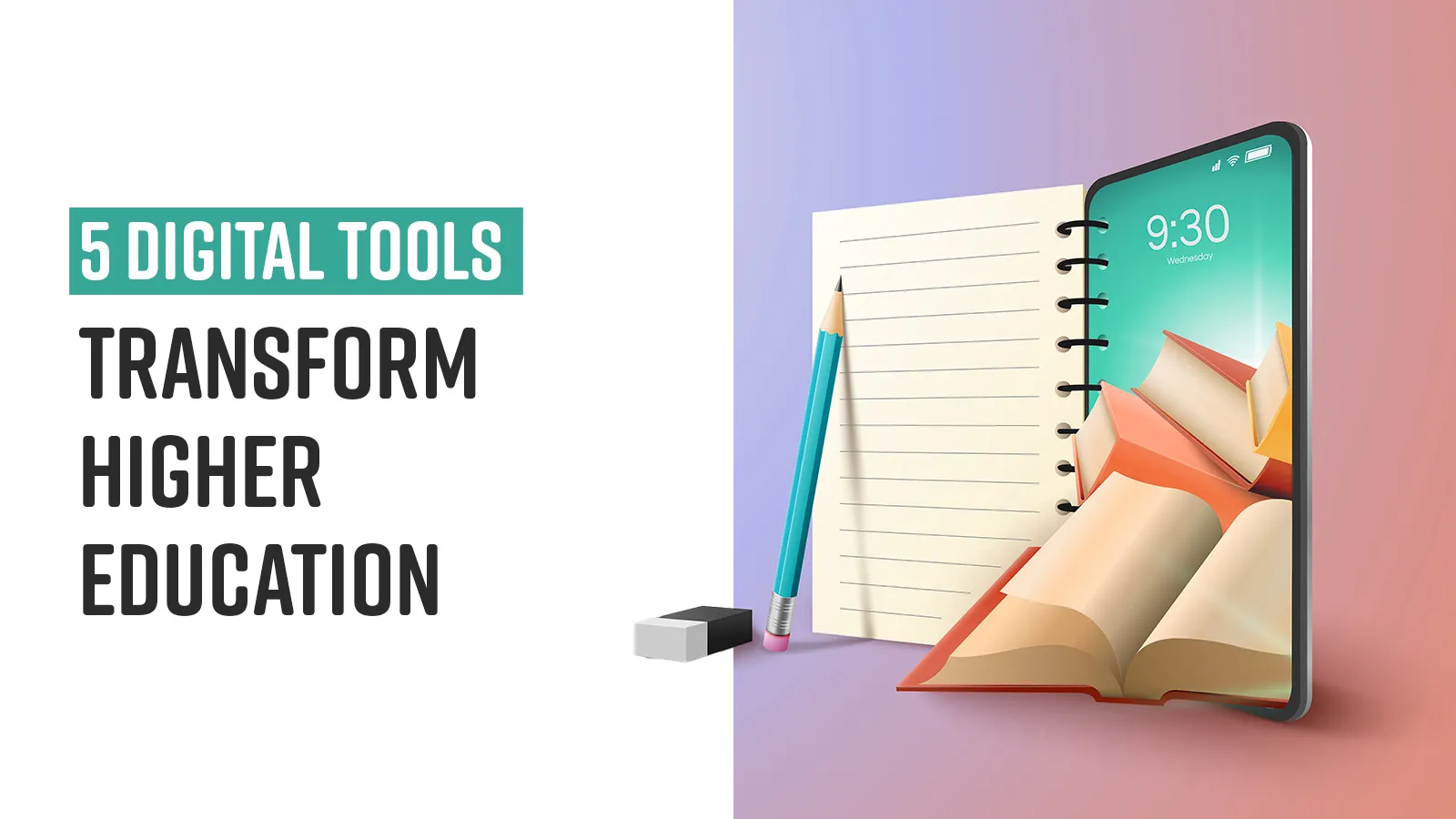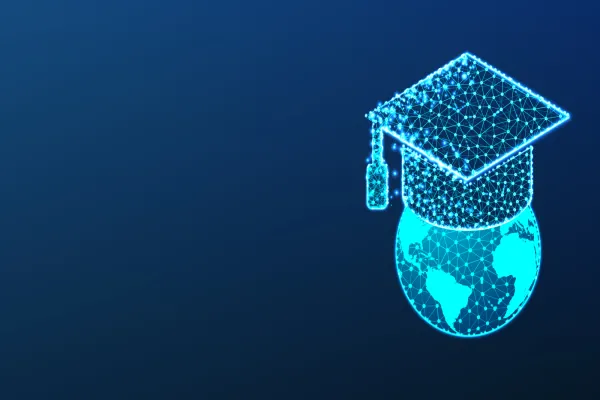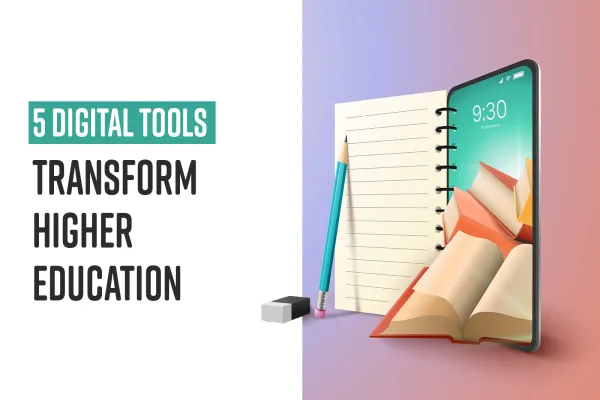About 13% of the universities and colleges are already engaged in digital transformation, while 32% of them are in the process of developing DX strategy, as per recent research. Another 38% of higher education institutions are exploring the possibilities and scope of digital transformation. The figures aptly suggest that the technological shifts through digital transformation and the usage of new tools are transforming the operating models, value proposition, and strategic direction of higher educational institutions.
In this blog, we’ve created a list of such digital tools which can transform higher education by ensuring extensibility, scalability, agility, interoperability, and data integrity across different platforms.
Adaptive Learning
Delivering custom learning experiences that match the needs of each individual through real-time feedback, pathways, and resources are called adaptive learning. Instructors can tutor students by making them understand unique and difficult concepts. Since the instructors adapt to the needs of learners, therefore it is called adaptive learning. Three core pillars of adaptive learning can be summed up:
Adaptive Content where students can answer questions by responding with feedback based on certain responses like review materials, hints, and more. This can be seen as an upgrade from just marking the question correct, or incorrect without reasoning.
Adaptive Sequence means a continuous process of collecting and analyzing students’ data to automatically alter what a student would see next.
Adaptive Assessment can change the questions presented to a student, depending upon what or how he/she has answered the previous question. This method can be seen as a benchmark for understanding a student's progress.
Adaptive learning digital tool focuses on the use of technologies that emulate educators’ talent to facilitate a great learning experience for each student. Adaptive learning technology adapts to students using various technical variations, which include algorithm adaptivity and design adaptivity.
Apps based on adaptive learning
- Leading ed-tech firm Byju’s offers unique learning journeys apart from guided learning paths, recommendations, and actionable feedback.
- Cerego, the adaptive learning platform for higher education, enables the improvement of students’ learning capabilities, and progress tracking.
- Quiklrn, is a part of the National Education Alliance for Technology (NEAT 2.0). It enables integrated AI-based Learning Services for a personalized experience.
Badging in Gamification
Badges are motivational digital tools that reward learners after they’ve achieved a set level of difficulty. collecting badges during gamification of education transforms the education process into fun, which stimulates learners’ response to newer learning materials.
Gamification badges are an alternative to the traditional grading system. Due to learners’ motivation to “acquire new badges,” gamification is among the top-demanded features in the Learning Management Systems of most higher education institutes.
Apps based on gamification
- Khan Academy correlates learners’ performance with score gains (badging) on standard achievement tests.
- Coursera, a platform with universal access to the top universities, also has this rewarding process, making learning fun.
- Udemy, a gamified education app platform, allows learners to access university courses from across the world. It uses progress bars to indicate a learner’s advancement.
In our next blog, we shall continue to speak about the other three key digital tools that can transform higher education. Our next part focuses on the blended learning model, enhanced classroom technologies, and learning analytics.




